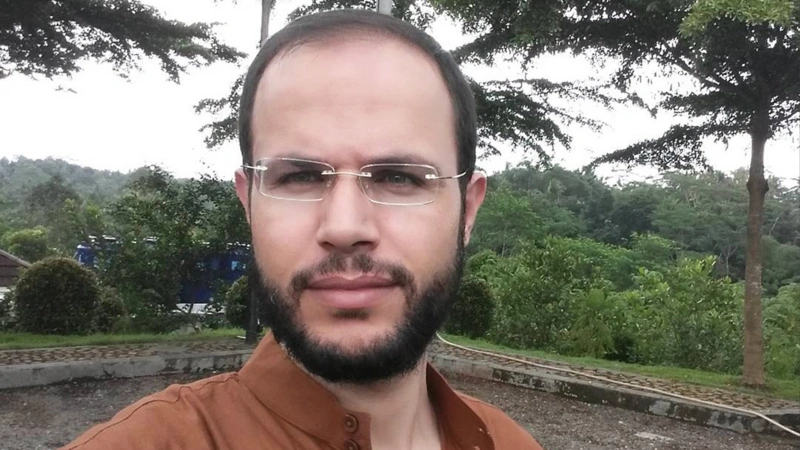- Web Desk
- Today
Palestinian poet Refaat Alareer would be 46 today if Israel hadn’t killed him
-

- Web Desk
- Sep 23, 2025

WEB DESK: The United Nations General Assembly (UNGA) is in full swing in New York and many countries like France, the United Kingdom and Canada are doing the world a grand favour by recognising the State of Palestine after good seven decades or so. One wonders what great Palestinian poet Dr Refaat Alareer would say if he were alive to witness the guilt-ridden nations rushing to wash off the genocide, but alas he cannot see this because he was killed on December 6, 2023. On his birthday today, he would have turned 46. His poem ‘If I Must Die’ has been shared globally since his death by Israeli air strike, and resonates with oppressed groups everywhere.
According to one his students, he was both a demanding teacher and a literary mentor who changed countless lives.
As reported by Al-Jazeera, the student first met him in 2015 at Gaza’s English Club, where he introduced Gaza Writes Back, a collection of stories he edited alongside his own, capturing the trauma of growing up under siege. His personal story of defying his father’s wish for him to study medicine by intentionally failing science exams to pursue English inspired the audience of young writers. Despite parental disapproval, he excelled academically, ranking second nationwide in his final exams before majoring in English.
Also read: World summit on two-state solution amid Israel, US boycott
Later, at the Islamic University of Gaza, where he taught, Alareer quickly gained a reputation as a tough but fair professor. He demanded absolute dedication from his students, insisting that literature was meant to provoke questions, not provide easy answers. His rigorous approach often intimidated newcomers but ultimately shaped their discipline and love for language.
Outside the classroom, however, another side of him emerged. In a 2022 writing workshop, he was warm, approachable, and eager to share everything he knew about literature, writing, and translation. The student recalls how his guidance transformed their writing, teaching them to understand metaphors, puns, and the craft of translation. Gestures like buying him his favourite pizza symbolised the gratitude many felt for his mentorship.
Alareer’s encouragement extended beyond classes. When the student published their first story in 2023, he quietly acknowledged it, later offering rare praise that became a treasured memory. His presence, both strict and nurturing, left an indelible mark.
Similarly, in her essay, “Remembering Dr. Refaat Alareer,” Nadya Siyam mourned her late professor and friend, Dr Refaat Alareer. Siyam, who had been a shy student, credited Alareer with helping her discover her voice and get her work published. He was a champion for his students, helping them secure scholarships, jobs, and opportunities because he saw them as future leaders and “real changemakers.”
Alareer’s teaching style had gone beyond the traditional classroom. He challenged students to “rewrite a short story from the perspective of a different character,” which fostered empathy and critical thinking by deconstructing dominant narratives.
Also read: Palestinian Bedouins face eviction as Jewish settlement expands
He used Shakespeare’s The Merchant of Venice to discuss the experience of the oppressed, connecting it to the Palestinian struggle and teaching students to distinguish between Judaism and Zionism. Despite the blockade on Gaza, he had tirelessly organized online sessions to connect his students with global academics and activists.
Siyam also highlighted Alareer’s belief in his students’ potential and his dedication to their success even after graduation, as he helped them secure employment in a region with high unemployment. His influence lived on, with his poem “If I Must Die” being translated into over 250 languages and recited at protests around the world. Siyam concluded by affirming their duty to carry on his legacy and amplify his story.




